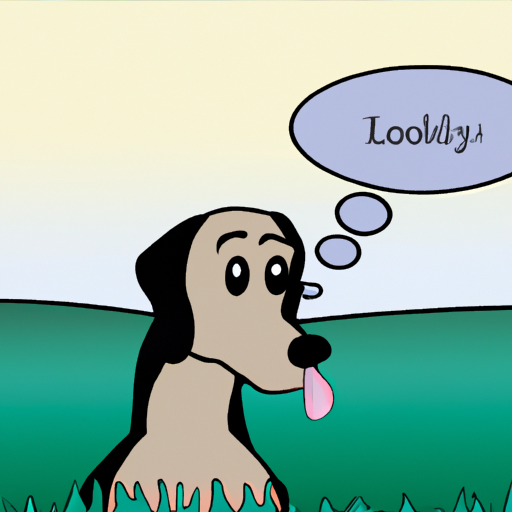As a devoted dog owner, you’re likely familiar with your pet’s quirks and habits. One behavior you may have noticed is air licking. Dogs lick the air for a variety of reasons, and understanding this behavior can provide valuable insights into your dog’s health and well-being.
Table of Contents
- Understanding Why Dogs Lick the Air
- Common Reasons Dogs Lick the Air
- When Air Licking Is a Cause for Concern
- How to Address Air Licking Behavior
- Frequently Asked Questions
Key Takeaways
- Dogs lick the air for reasons ranging from basic instincts to health issues.
- Recognizing the context in which your dog air licks can aid in understanding the underlying reasons.
- Consult a vet if your dog’s air licking is excessive or accompanied by other worrying symptoms.
Understanding Why Dogs Lick the Air
Dogs use their mouths much like we use our hands – for exploration. Just as a curious toddler might put objects in their mouth, a dog uses their tongue to explore their environment. This instinctual behavior is referred to as ‘oral fixation’. Oral fixation can lead to behaviors like chewing, licking, and of course, air licking.
While it may seem strange to us, to our dogs, it’s an entirely normal way of interacting with the world around them. However, if your dog is licking the air excessively, it may be indicative of an underlying issue.
Common Reasons Dogs Lick the Air
There are several reasons why a dog might lick the air, and the behavior is often contextual. Here are some common reasons:
-
Anticipatory Behavior: Just like humans salivate at the thought of a delicious meal, dogs lick the air in anticipation of food. If your dog tends to air lick around meal times or when you’re preparing food, this is likely the explanation.
-
Environmental Factors: Dogs can be sensitive to their surroundings. Changes in weather, strong perfumes, or smoke can cause dogs to lick the air. This behavior is a means of ‘tasting’ the air and assessing their environment.
-
Health Issues: Certain health problems like dental disease, gastrointestinal issues, or neurological disorders can trigger air licking. If your dog’s air licking is accompanied by other symptoms such as loss of appetite, lethargy, or changes in behavior, it’s time to consult a vet.
Use this table to understand the possible reasons behind your dog’s air licking:
| Reason | Context | Action |
|---|---|---|
| Anticipatory Behavior | Around meal times | Normal behavior |
| Environmental Factors | Changes in weather, strong smells | Monitor and keep environment clean |
| Health Issues | Accompanied by other symptoms | Consult a vet |
When Air Licking Is a Cause for Concern
While occasional air licking is normal, excessive or obsessive air licking can be a sign of distress or health issues. If your dog’s air licking is interfering with their daily routines or causing distress, it’s time to consult a professional.
Veterinarians and animal behaviorists can provide valuable insights and solutions. For example, this article on One Top Dog provides helpful information on recognizing when your dog’s behavior may be cause for concern.
How to Address Air Licking Behavior
Addressing your dog’s air licking depends on the underlying cause. Here are some general tips:
-
Redirect their attention: If your dog is air licking out of boredom or anxiety, engage them in play or training to distract them.
-
Create a calm environment: Minimize exposure to triggers like loud noises or strong smells.
-
Consult a professional: If the air licking is excessive or accompanied by other worrying symptoms, consult a vet or animal behaviorist.
One Top Dog has some excellent resources on dog training and creating a dog-friendly environment.
Frequently Asked Questions
Q: Is air licking a sign of anxiety in dogs?
A: It can be. Dogs often use licking as a self-soothing behavior. If your dog is licking the air frequently, especially in situations that may be stressful, it could be a sign of anxiety.
Q: Can air licking be a sign of dental issues?
A: Yes, dogs may lick the air if they’re experiencing discomfort in their mouth or throat, which could be caused by dental issues.
Q: Should I stop my dog from air licking?
A: It depends on the cause. If your dog’s air licking is normal and doesn’t interfere with their daily activities, there’s no need to stop it. However, if it’s excessive or causing distress, it’s best to consult a professional.
In conclusion, understanding why your dog licks the air can provide valuable insights into their health and behavior. Remember, as a caregiver, your intuition and observations are vital tools in ensuring your pet’s well-being. Don’t hesitate to seek professional help if you’re worried about your dog’s behavior.



